Sam Fankhauser

Sam is Professor of Climate Change Economics and Policy at the University of Oxford, where he is affiliated with the Smith School of Enterprise and the Environment and the School of Geography and the Environment. He is also Research Director of Oxford Net Zero and a Fellow of Reuben College.
Sam is a Co-Investigator of the Place-based Climate Action Network (PCAN), and ESRC-funded Network Plus hosted by the Grantham Research Institute and also including Queen’s University Belfast and the Universities of Edinburgh, Leeds and Oxford.
Background
Sam was Director of the Grantham Research Institute on Climate Change and the Environment from September 2017 until March 2021 and Co-Director from March 2011 until August 2017, along with Prof Simon Dietz. He joined the Grantham Research Institute in 2008 as a Principal Research Fellow.
During his time at the institute Sam was also Deputy Director (2013-18) and Director (2018 – 21) of the ESRC Centre of Climate Change Economics and Policy (CCCEP). He was a member of the UK Climate Change Committee (2008-16) and a non-executive Director of CDC Group (2015-21).
Research interests
- Climate change economics and policy
- The economics of adaptation to climate change
- Climate change and development
Research
Research - 2024
The article considers the role of place-based climate action and draws on the experiences of the UK Place-based Climate Action Network (PCAN). Read more

Using publicly available data on country- and company-level net-zero targets, this econometric analysis reveals a positive relationship between state and company: A country introducing a domestic net-zero target in law increases the likelihood of companies introducing their own voluntary targets and vice-versa. Read more

Research - 2023
The transition away from a fossil-fuel powered economy towards a cleaner production system will create winners and losers in the... Read more

The authors of this paper analyse the international impact on carbon emissions from national climate legislation in 111 countries over 1996–2018. Read more

Research - 2022
This paper uses network analysis to study the structural properties of international environmental cooperation. Read more

Research - 2021
In the lead up to the COP26 in Glasgow this article outlines the challenge of ensuring that countries meet their commitments to the Paris Agreement at a time of economic slowdown triggered by COVID-19. Read more

This is a resource aimed at school students and teachers, with downloadable information, video clips and teacher suggestions, appearing in the Science Journal for Kids and using information from Climate Change Laws of the World. Read more

Focusing on London, UK, this paper presents evidence collected via semi-structured interviews with experts and practitioners involved in the propagation of climate emergency declarations to critically explore how and why these declarations emerged, and the various different roles they are perceived to play for different local actors. Read more
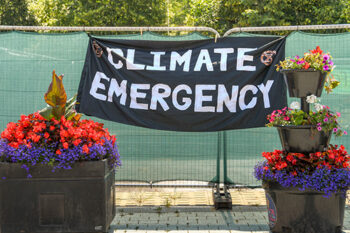
There is considerable anxiety about the international impact of unilateral action on climate change, particularly around ‘carbon leakage’. Looking at the impact of national climate change policy and legislation over the past two decades, this paper finds no evidence it has increased international carbon leakage. Read more
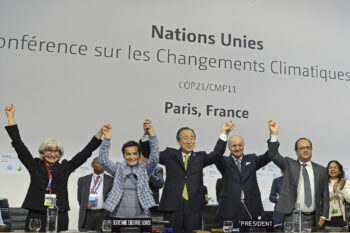
This paper applies the tools of network analysis to understand the global network of international cooperation created by the system of international environmental agreements, which number more than 2,000. Read more
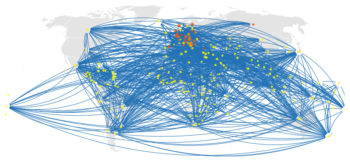
Climate change advisory bodies are rapidly proliferating around the world, often with statutory underpinning. While they are argued to be... Read more

Research - 2020
Many countries are committed to emerge from COVID 19 on a more sustainable environmental footing. Here we explore what such... Read more

There is no country in the world that does not have at least one law or policy dealing with climate... Read more

This paper assesses the importance of a strategic legal framework for action against climate change, using the UK Climate Change Act as... Read more

This paper assesses the importance of a strategic legal framework for action against climate change, using the UK Climate Change Act as an example. Read more

The international response to climate change has been inadequate, but not zero. There are 1,800 climate change laws worldwide. We... Read more

This paper draws lessons from the COVID-19 crisis for climate change. Read more

Multilateral development institutions often use performance-based allocation (PBA), mathematical formulas based on a list of performance criteria, to inform the allocation of development assistance or environmental funding. The way the formulas are designed can have material and often unintended consequences on the allocation of funds; this paper highlights a particular problem called the ‘cardinal fallacy’. Read more

Climate policies do not affect all power producers equally. In this paper, we evaluate the supply-side distributional consequences of emissions... Read more

Globally, semi-arid lands (SALs) are home to approximately one billion people, including some of the poorest and least food secure.... Read more

Research - 2019
The unprecedented advances in economic development witnessed over the past decades cannot continue if economic progress comes at the expense... Read more

Research - 2018
Changes in labour productivity feed through directly to national income. An external shock, like climate change, which may substantially reduce... Read more

Abstract Carbon taxes represent a cost‐effective way to steer the economy toward a greener future. In the real world, their... Read more

This paper investigates to what extent and how micro, small and medium-sized enterprises (SMEs) in developing countries are adapting to climate risks. Read more

This report summarises lessons from the Climate Change Act, for the UK and other countries, on how climate change legislation is best structured to be effective. Read more

This research investigates the economic response of rural households in Pakistan to natural disasters, particularly the extent to which they adjust their savings and income strategies in response to floods. Read more

A deepening understanding of the importance of climate change has caused a recent and rapid increase in the number of... Read more
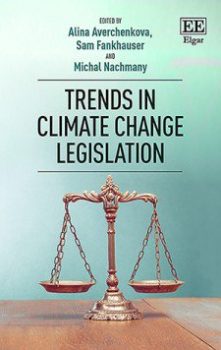
Research - 2017
This paper investigates the extent to which, and how, small and medium-sized enterprises (SMEs) in poor countries are adapting to climate risks, finding that the ability of firms to respond depends on factors that can be shaped through policy intervention. Read more

Abstract This article reviews the economic and analytical challenges of adaptation to climate change. Adaptation to climate risks that can... Read more

Abstract Energy is needed for economic growth, and access to cheap, reliable energy is an essential development objective. Historically most... Read more

This paper simulates the distributional consequences of alternative carbon emission reduction policies on power producers and finds that that a carbon tax outperforms all other instruments and does not reduce the profits of carbon-free generators. Read more

Energy is needed for economic growth, and access to cheap, reliable energy is an essential development objective. However, in the... Read more

Shaikh M.S.U. Eskander, Samuel Fankhauser, and Shikha Jha ADB Economics Working Paper Series, December 2016 Read more

Research - 2016
This article reviews the economic and analytical challenges of adaptation to climate change. Read more

Putting the SDGs and Paris Agreement together, the agreements of 2015 have given us, for the first time, a global agenda for sustainable development applying to all countries. This paper sets out the implications of this agenda, and climate change in particular, for development economics and development policy. Read more

Some climate change is now inevitable and strategies to adapt to these changes are quickly developing. The question is particularly... Read more
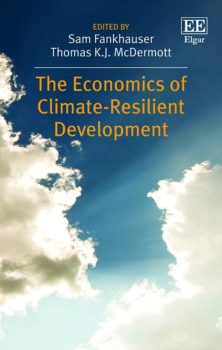
Research - 2015
This paper reviews the main domestic factors that drive legislation on climate change. Read more

Climate change cannot be addressed unless developed and developing countries alike invest heavily in low-carbon technologies and climate-resilient practices. Access... Read more

This paper discusses the implications of climate change for official transfers from rich countries (the North) to poor countries (the South) when the motivation for transfers is ethical rather than strategic. Read more

The number of climate change laws in major economies has grown from less than 40 in 1997 to almost 500 at the end of 2013. The passage of these laws is influenced by both domestic and international factors. This paper reviews the main international factors, drawing on a powerful new dataset of climate legislation in 66 national jurisdictions. We find that the propensity to legislate on climate change is heavily influenced by the passage of similar laws elsewhere, suggesting a strong and so far under-appreciated role for international policy diffusion. Read more

Research - 2014
Fankhauser, S. and D.W. Pearce (2014). Book chapter in: G. Atkinson, S. Dietz, E. Neumayer and M. Agarwala, eds. Handbook... Read more

Fankhauser, S. and D.W. Pearce (2014). in: Handbook of Sustainable Development. G. Atkinson, S. Dietz, E. Neumayer and M. Agarwala,... Read more

This paper analyses the link between income and adaptation to climate events theoretically and empirically. Read more

Working Paper 156 Abstract This paper analyses national and international factors that drive the adoption of legislation on climate change.... Read more

Research - 2013
Fankhauser, Samuel, Bowen, Alex, Calel, Raphael, Dechezlepretre, Antoine, Grover, David, Rydge, James and Sato, Misato (2013) Who will win the... Read more

Understanding the adaptation deficit: why are poor countries more vulnerable to climate events than rich countries? Read more

Working Paper 123 Abstract This paper discusses the implications of climate change for official transfers from rich countries (the North)... Read more

Reference Townshend, T., Fankhauser, S., Aybar, R., Collins, M., Landesman, T., Nachmany, M., and Pavese, C. April 2013. How national legislation can... Read more

Research - 2012
Working Paper 94 Abstract As the world considers greener forms of economic growth, countries and sectors are beginning to position... Read more

Research - 2011
Reference Bowen, A., and Fankhauser, S. October 2011. The green growth narrative: paradigm shift or just spin? Global Environmental Change, v.21,... Read more

Abstract It is only a small exaggeration to say that climate change policy is dominated by targets. Internationally, the emission... Read more

Reference Townshend, T., Fankhauser, S., Matthews, A., Feger, C., Liu, J., and Narciso, T. September 2011. Legislating climate change on... Read more

Abstract Discussions about adaptation finance have largely concentrated on process: how money should be raised and how adaptation spending should... Read more

Working Paper 38 Abstract Putting a price on carbon is critical for climate change policy. Increasingly, policy makers combine multiple... Read more

Abstract The contribution of the least developed countries (LDCs) to the greenhouse gas problem is very small. LDCs accounted for... Read more

Working Paper 37 Abstract The discussions about adaptation finance have mostly been about process: how money should be raised and... Read more

Research - 2010
Abstract Putting a price on carbon is critical for climate change policy. Increasingly, policymakers combine multiple policy tools to achieve... Read more

Abstract The policy debate on climate change distinguishes two generic response options. The first (and more prominent) option is mitigation.... Read more

Abstract There is an increasing demand for putting a shadow price on the environment to guide public policy and incentivize... Read more

Abstract This paper analyses the design of carbon markets in time (i.e., intertemporally). It is part of a twin set... Read more

Designing carbon markets Read more

Abstract Additional finance for adaptation is an important element of the emerging international climate change framework. This paper discusses how... Read more

The costs of adaptation Read more

Abstract A levy on the Clean Development Mechanism and other carbon trading schemes is a potential source of finance for... Read more

Research - 2009
Working Paper 11 Abstract Carbon markets are central to the global effort to reduce greenhouse gas emissions. We introduce a... Read more

Working Paper 7 Abstract Policy interest in the cost of adaptation is growing, but compared to the mitigation cost literature,... Read more

Working Paper 3 Abstract We analyse the design of carbon markets in time (intertemporally) and space (geographically) from first principles,... Read more

Working Paper 2 Abstract The Clean Development Mechanism (CDM) of the Kyoto Protocol has a dual objective: to encourage low-cost... Read more

Working Paper 1 Abstract A levy on the Clean Development Mechanism (CDM) and other carbon trading schemes is a potential... Read more

Research - 2008
Abstract The employment effect of climate policy has emerged as an important concern of policy makers, not least in the... Read more

Policy
Policy - 2024
This Final Report covers the ESRC-funded activities of PCAN between 2019 and 2024. Read more
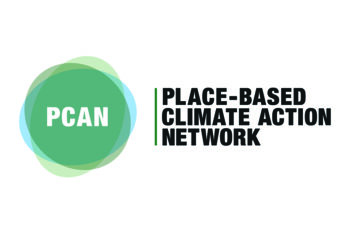
Policy - 2023
This report takes stock of local climate action in the UK as of early 2023 and summarises the experience of the Place-based Climate Action Network (PCAN) over the last five years, through analysis, reflections, survey evidence and case studies, providing recommendations to a range of stakeholders. Read more

This publication forms the chair’s report for the Independent Expert Advisory Group convened by the Climate Change Committee to support... Read more

Policy - 2021
The authors of this chapter review the UK’s emissions performance so far and sketch out the main measures needed to implement the legislated emissions path. They then highlight four strategic interventions that could help to unlock those changes. Read more

Policy - 2020
This brief argues that once the immediate rescue has been secured and countries move towards recovery from COVID-19, carefully implementing carbon pricing while reducing fossil fuel subsidies should be at the core of any stimulus package. Read more

This study explores the distributional impacts of a net-zero-consistent carbon price across different household types and income deciles in the UK; and examines which combination of interventions may reduce carbon consumption and still be progressive. The authors find that it is possible to design a revenue recycling scheme that leaves fuel-poor and low-income households better off while driving the transition to net-zero emissions in the UK by 2050. Read more
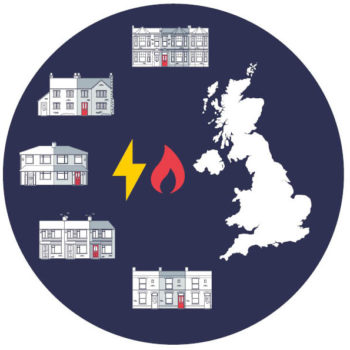
Policy - 2019
The Grantham Research Institute’s response to the Commons Select Committee inquiry into decarbonisation of the UK economy highlights the Treasury’s unique position in government to drive the transition towards net-zero greenhouse gas emissions while maintaining a focus on economic growth. Read more

This policy brief analyses global trends in carbon taxation and differences in tax design around the world to draw out lessons for the design of a possible new carbon tax for the UK, as the country plans how to meet its ambitious new net-zero emissions target and how it prices carbon after Brexit. Read more

This report explains the importance of pricing carbon as a key component of any strategy to reach net-zero emissions in the UK, setting out how the price may differ sector to sector and how to incentivise negative emissions. Read more
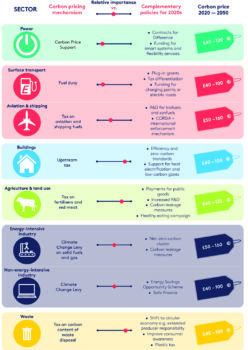
Policy - 2018
10 years on from its establishment, this report assesses the role of the independent Committee on Climate Change (CCC) in shaping UK climate policy, drawing out lessons for international and domestic policymakers. Read more

This policy brief provides a summary assessment of the role of the independent Committee on Climate Change (CCC) in shaping UK climate policy. Read more

This is the French translation of the PRISE [PRESA] policy brief 'Supporting private adaptation to climate change in semi-arid lands in developing countries', published in June 2018. Read more

National governments, with development partners, have an important role to play in supporting adaptation and climate-resilient development among private actors – households, producers and small businesses – in the semi-arid lands of developing countries, argues this brief, a final output from the Pathways to Resilience in Semi-Arid Economies (PRISE) project. Read more
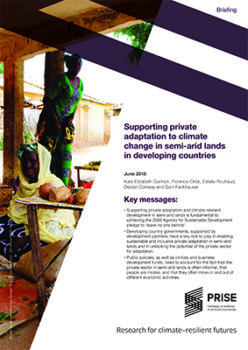
This briefing note submits learning to the Talanoa Dialogue process from PRISE on supporting private adaptation to climate change by households and businesses in semi-arid lands. Read more

This policy brief is a condensed version of our report on the Climate Change Act, summarising lessons for the UK and other countries, on how climate change legislation is best structured to be effective. Read more

This report summarises lessons from the Climate Change Act, for the UK and other countries, on how climate change legislation is best structured to be effective. Read more

Policy - 2017
Presentation for Brussels launch event, 05 December 2017 Read more

This report investigates the extent to which current policies and institutional arrangements are fit for purpose for the new decarbonisation phase into which the EU is entering. It summarises the main findings from the Statkraft research programme. Read more

Taxing carbon is one of the best ways to incentivise the reduction of greenhouse gas emissions but is often faced with opposition. This report explores practical ways through which carbon taxes can be made more politically attractive. Read more

Ongoing concerns about the best policies to achieve affordability have led to three reviews: of energy costs, of the Levy Control Framework, and of carbon pricing. This paper draws on research findings and empirical evidence to identify key principles and issues that should be taken into account by the Government in relation to these separate but related reviews. Read more

This brief summarises and updates the latest annual stocktake of trends in climate change litigation and legislation. Read more
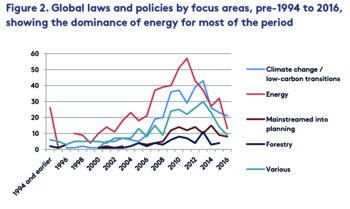
This report summarises key trends in climate change legislation and litigation. It is the sixth stock-take in a series of global Climate Legislation Studies that dates back to 2010. Read more

This paper was submitted in response to the UK Government’s industrial strategy green paper: ‘Building our industrial strategy‘. Read more

This policy brief outlines the opportunities and threats to trade in low-carbon goods and services in the UK. Read more

Policy - 2016
Presentation given at the LSE Conference ‘Britain and Europe: Towards Brexit?’ in Brussels on 8th December 2016. Read more

Presentation given at the Britain and Europe: Towards Brexit? LSE Workshop on 6 December 2016. Read more

The Climate Legislation Study covers over 850 national laws and policies directly related to climate change mitigation and adaptation. This update covers major new executive acts and laws passed during 2016 and gives a brief overview of current trends in climate legislation. Read more
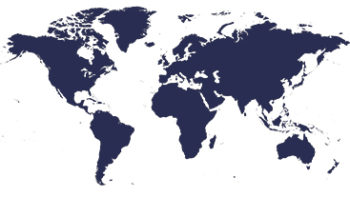
Published in: Bridging the Ambition Gap: The Rise, Reach and Power of Carbon Markets. 13th Edition of Greenhouse Gas Market Report. 2016.... Read more

Presentation to the British Institute of Energy Economics Conference in Oxford on 21 September 2016. Read more

This policy brief summarises the main policy implications of a two-year research programme, sponsored by the Global Green Growth Institute (GGGI), which aimed to contribute to the growing evidence base on green growth. Read more

Policy - 2015
This policy paper was submitted to HM Treasury in response to its consultation on 'Reforming the business energy efficiency tax landscape'. Read more

This paper looks at the economic aspects of migration in six semi-arid countries that are the focus of the PRISE (Pathways to Resilience in Semi-Arid Economies) project: Burkina Faso, Senegal, Kenya, Tanzania, Pakistan and Tajikistan. Read more
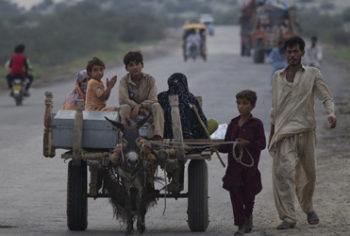
Adaptation presents developing countries with the ultimate dual challenge – building a rapidly evolving, sustainable economy within an environment increasingly altered by the impacts of climate change. To meet this challenge, adaptation policy must find balance and create synergy between the two, as climate resilience and economic resilience go hand in hand. Read more

This report summarises the main insights from the 2015 Global Climate Legislation Study. It is the fifth edition in a... Read more

Policy - 2014
Outlines the main energy and climate change challenges in the UK over the next five-year term Read more

This is a submission by the ESRC Centre for Climate Change Economics and Policy and Grantham Research Institute on Climate... Read more

Headline issue The UK Government is reviewing the fourth carbon budget for the period 2023-27. The Committee on Climate Change... Read more

Note: New and updated 2015 edition available The GLOBE Climate Legislation Study is the most comprehensive audit of climate legislation... Read more

Sam Fankhauser, Simon Dietz and Phillip Gradwell Read more

Policy - 2013
Briefing Note Headline issue Through the Water Bill, the Government is seeking powers to establish a new scheme for the... Read more
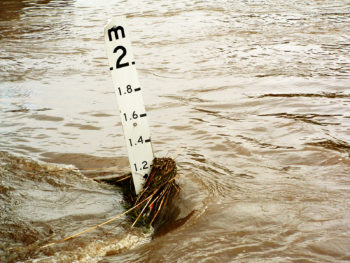
Energy use policies and carbon pricing in the UK Read more

Headline issue The UK has a complex system of energy taxes which affect the business sector. Overlaps between taxes mean... Read more

An Independent National Adaptation Programme for England Read more

Shifting from coal to natural gas for electricity generation can help the UK power sector to decarbonise in the near term. With good planning and investment, natural gas can support the development of a low-carbon power sector by providing essential backup for intermittent renewables, but could only play a bigger role longer-term if fitted with carbon capture and storage (CCS) technology.
However, a new UK ‘dash’ for gas on the assumption of low prices is a risky economic and environmental option. A lower risk option is a ‘dash’ for smart gas; using natural gas in those areas where it offers the greatest value in decarbonising the power sector. Read more

Please see the updated, global, online database here. Terry Townshend, Sam Fankhauser, Rafael Aybar, Murray Collins, Tucker Landesman, Michal Nachmany... Read more

Policy - 2012
Samuela Bassi and Sam Fankhauser Read more

Abstract Adaptation to climate change will be a permanent feature of decision making from now on. As such it is... Read more

Summary This policy brief investigates the extent to which onshore wind can contribute to future electricity generation, whether there are... Read more

Abstract This paper identifies practical lessons for policy makers that seek to decarbonise their economies, drawing primarily on the UK... Read more

Policy - 2011
Cameron Hepburn, Sarah Chapman, Baran Doda, Chris Duffy, Samuel Fankhauser, James Rydge, Kathryn Smith, Luca Taschini and Alessandro Vitelli Read more

Policy - 2010
Headline issue Climate change is one of the most significant challenges we face. It will impact the UK population, environment... Read more

Abstract Socio-economic development and adaptation to climate change are closely intertwined. Adaptation is increasingly described as climate resilient development or... Read more

Providing additional finance for adaptation is a key element of the emerging international climate change framework. This paper discusses how... Read more

Policy - 2009
Alex Bowen, Samuel Fankhauser, Nicholas Stern and Dimitri Zenghelis Read more

Books
Books - 2019
The unprecedented advances in economic development witnessed over the past decades cannot continue if economic progress comes at the expense... Read more

Books - 2018
A deepening understanding of the importance of climate change has caused a recent and rapid increase in the number of... Read more

Books - 2016
Some climate change is now inevitable and strategies to adapt to these changes are quickly developing. The question is particularly... Read more

Books - 2014
Fankhauser, S. and D.W. Pearce (2014). in: Handbook of Sustainable Development. G. Atkinson, S. Dietz, E. Neumayer and M. Agarwala,... Read more

Events
Events - 2021
Events - 2019
Events - 2018
Events - 2017
The environment and the economy: Fostering clean growth in the 21st century – video
Event Type: Public LecturesWebinar | Climate Change Laws of the World – global trends in legislation and litigation – video
Event Type: SeminarsEvents - 2016
LSE Executive Education course | Climate change: economics and governance
Event Type: LSE Executive Education CoursesGrantham Seminar | Nature and wealth: overcoming environmental scarcity and inequality
Event Type: SeminarsVIDEO Public lecture | We’ll always have Paris: COP21 and the new political economy of climate change
Event Type: Public LecturesEvents - 2015
LSE Executive Summer School | Climate change: economics and governance
Event Type: LSE Executive Education CoursesGrantham Workshop | Outcomes of COP 21 in Paris and implications for the research agenda
Event Type: Grantham WorkshopEvents - 2014
LSE Executive Summer School | Climate change: economics and governance
Event Type: LSE Executive Education CoursesDr James Hansen – Itinerant Farming to White House Arrests: a scientist’s view of the climate crisis
Event Type: Public LecturesNews
News - 2024
This article discusses new research assessing the economic benefits of cutting emissions from buildings and transport across the UK. Read more

News - 2023
This commentary discusses conundrums facing the greenhouse gas removal industry, in the light of Microsoft's recent significant purchase of carbon removal credits. Read more

News - 2022
The high quality of research by the London School of Economics and Political Science has been recognised in the results of the... Read more

News - 2020
The UK government has announced an all-male COP26 leadership team. A line-up that includes women would not only be more representative, but could also be more effective and trusted, argue the authors of this commentary. Read more

During a global pandemic it is easy to overlook other impending threats, such as climate change. COVID-19 struck at a critical time for international action against climate change and has interrupted its momentum – hopefully only temporarily. Read more

Shaikh Eskander and Sam Fankhauser share the results of their new study that shows the carbon savings made due to climate change laws and policies over the last two decades and call on policymakers to adopt identified good practice to enable deeper cuts in emissions. Read more
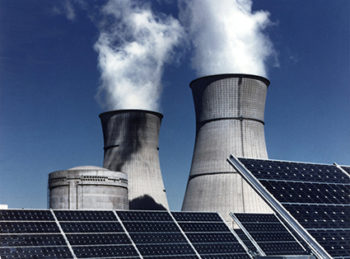
In this video commentary Prof Sam Fankhauser discusses how we can integrate sustainable development goals into the post-COVID-19 economic recovery. He is joined by and Dr Charles Donovan from the Centre for Climate Finance and Investment at Imperial College Business School. Read more

News - 2019
Sam Fankhauser outlines the findings of a new review that reveals the UK’s significant contribution to social science research on climate change over the last 10 years – but also some important research gaps that must be filled so that global climate policy can be guided by the best available evidence. Read more

Professor Sam Fankhauser comments on France’s introduction of an “eco-tax” – of €1.50 (£1.35) charged on domestic and intra-European flights, and €3 (£2.50) on flights outside the European Union. Read more

The report that the UK government is allegedly preparing to use previous overperformance in reducing carbon emissions when calculating its carbon budget for up to 2027 indicates a worrying willingness to game the system on meeting crucial climate change targets says Sam Fankhauser in this letter to the FT. Read more

News - 2018
The Government is seeking advice on how the UK can achieve 'net-zero' emissions from across the economy. But why is net-zero on the table and what would it take to achieve it? Read more

Sam Fankhauser reflects on the successes of the UK's independent climate advisory body 10 years after its establishment - and the challenges it faces for the future. Read more
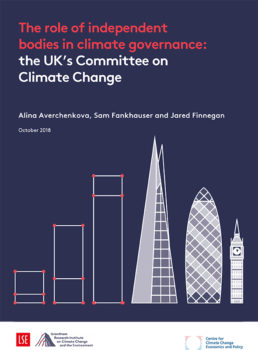
Aljazeera, 6 August 2018 Read more

Reuters, 2 August 2018 Read more

Sam Fankhauser reflects on public support for the UK's political leadership on climate change. He goes on to consider the track record of the Conservative Party whilst in government over the past 8 years. Read more

Sam Fankhauser, who was a founding member of the UK Committee on Climate Change looks back over its achievements and considers the challenges it may face in the coming years. Read more

News - 2017
City AM, 5 December 2017 Read more

Professor Dieter Helm’s Cost of Energy review was greeted in parts of the press with headlines like “excessive green taxes force up energy bills”. Sam Fankhauser analyses the review in the context of UK efforts to tackle climate change. Read more
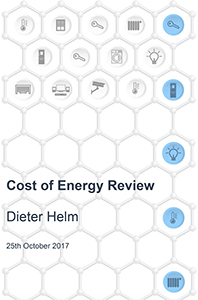
Mobilising private sector funding and implementing a strong industrial strategy will be critical to the sucess of the UK Government's Clean Growth Strategy says Sam Fankhauser. Read more
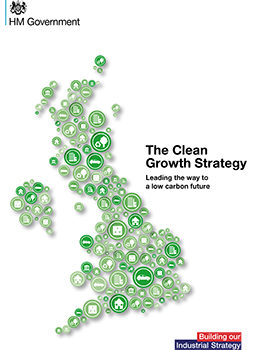
Independent, 2 June 2017 Read more

UNFCC Conference on 9 May Read more

France24, Sébastian Seibt, 10 May 2017 Read more

A recent study from the Grantham Research Institute found that the mere existence of Paris had prodded dozens of countries to enact new clean-energy laws. Read more

Nations around the world have adopted more than 1,200 laws to curb climate change, up from about 60 two decades ago, a sign of widening efforts to limit rising temperatures, according to a new study. Read more

Quebec Huffington Post, 10 May 2017 Read more

The UK has played an important role in shaping and advancing European action on climate change. Without it, other Member States will find themselves picking up the slack or the EU will miss its greenhouse gas target for 2030, write Maria Carvalho and Sam Fankhauser. Read more

News - 2016
What does the creation of a new Department for Business, Energy and Industrial Strategy (BEIS) mean for climate change policy?... Read more

The Conversation, 16 March Read more

BBC, 16 March Read more

Telegraph, 23 December Read more

Independent, 14 December Read more

Korea Times, 14 December Read more

News - 2015
LSE Politics Blog, 8 December 2015 Read more

Co-Director, Sam Fankhauser explains that making strategy and decision-making more transparent, and delegating regulation to independent bodies, are steps that will help depoliticise the UK energy sector and increase investor trust. Read more

The Gulf, 1 December This content is no longer available online. Read more

Does a new study on the effects of climate change on migration patterns in developing countries have any implications for the current refugee crisis in Europe? Read more

Developing countries should tackle the twin opportunities of climate resilience and economic resilience together argue Adriana Kocornik-Mina and Samuel Fankhauser. Read more

The Guardian, 9 July Read more

Samuel Fankhauser looks ahead to December’s climate summit in Paris and argues for a more proactive policy to keep Europe at the forefront of the fight against global warming. Read more

News - 2014
Committee on Climate Change Blog Read more

BBC World Service, In the Balance, 28 September 2014: Following the major United Nations climate gathering in New York we... Read more

Professor Samuel Fankhauser examines the policy measures needed to ensure shale gas extraction is commensurate with our wider climate change objectives Read more

The Conversation Read more

News - 2013
The Grantham Research Institute has been awarded the prestigious platinum award for its Green Impact sustainability programme. Green Impact is a nationally run programme led by the National Union of Students (NUS), which assesses university departments’ actions to reduce their environmental impact and promote sustainability among staff and students. Read more
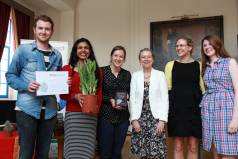
On 26 January, Institute members Sam Fankhauser and Naomi Hicks will be joining a number of environment experts at the... Read more
News - 2011
There have been two sobering climate change statistics recently. First we learnt that despite a sluggish economy, global emissions of... Read more

Grantham’s Acting Co-Director, Sam Fankhauser, will be discussion ‘Sustainable economy in 2040: A roadmap for capital market’ as part of... Read more
There is much talk at the moment about green growth – environmentally sustainable, biodiverse, low-carbon and climate-resilient growth in human... Read more

How can Africa make a meaningful contribution to the global effort against climate change? That was the premise of a... Read more

Like other commodity markets, the “global” carbon market is in fact a series of smaller, differentiated trading platforms and products,... Read more

Britain’s carbon budgets are domestic emissions objectives, adopted because they make sense for the UK. But climate change is a... Read more

News - 2009
Samuel Fankhauser outlines the areas of dispute—as well as possible compromises Read more

Nicholas Stern, Alex Bowen and Sam Fankhauser: We still have a long way to go, but this week’s climate decisions... Read more


